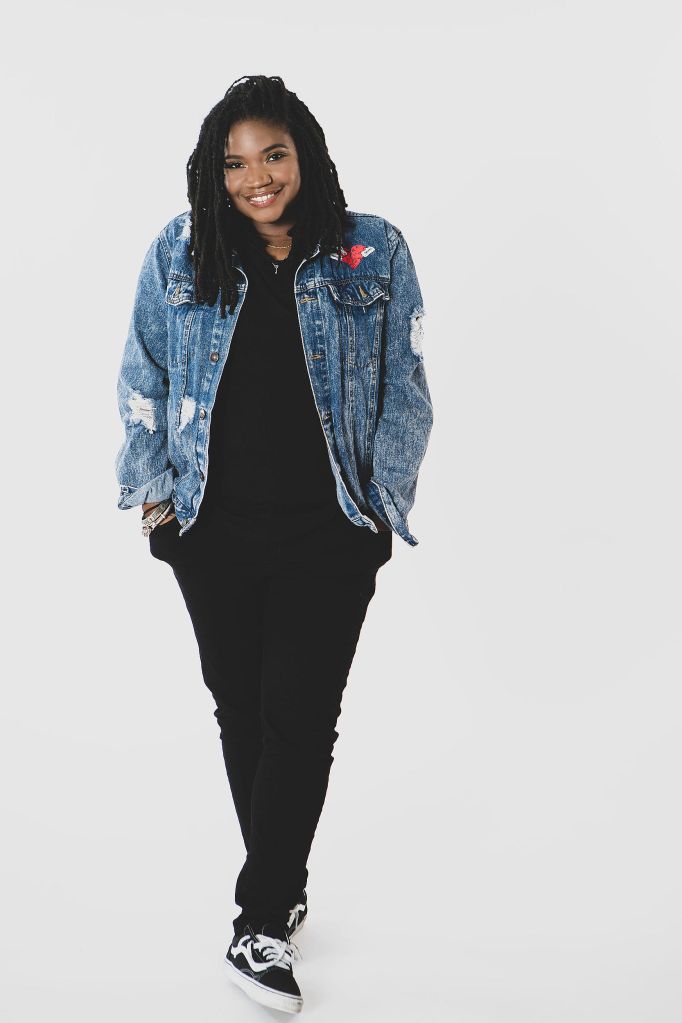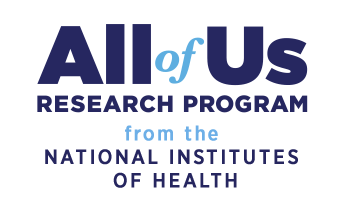Radio Host Angie Ange Shares Why the All of Us Research Program Matters
Angie Ange: Sharing My Journey With The Largest And Most Diverse Health Resource Of Its Kind – And Why Participation Is Power

Source: Collection of Angie Ange / other
‘Good morning it’s a beautiful day! Angela speaking how may I help you?’
‘It’s not a beautiful day today…’
‘Why not??’
‘My father just died’
This was a very unexpected call I got from my best friend. As I could hear her trying to hide back tears, I immediately went into best-friend mode. How, why, what happened, is there anything you need me to do?? The paramedics were saying it was a heart attack, but we couldn’t understand how. My best friend’s father was in great shape, took care of himself, and lived a relatively happy life with his wife. It didn’t make any sense. And then we started talking about potential family history and there were multiple instances where sudden heart attacks ended the lives of her family members prematurely. I asked my best friend, “Don’t you want to know what runs in your family or how you can potentially prevent it or even get the right treatments?” But the next question became ‘how?’
When I first heard about the All of Us Research Program, I immediately wanted to sign up because these are the kinds of conversations I have more and more with my own family as I get older. At 36, prevention is at the top of my list when it comes to my health. Watching my grandfather deteriorate from Alzheimer’s, my grandmother suffering from arthritis, and my mom, dad, and family members discuss various ailments in such a matter-of-fact way is why I believe the All of Us Research Program is needed in our communities.
The numbers don’t lie, nearly 40 percent of Americans belong to a racial or ethnic minority, but the patients who participate in clinical trials for new drugs skew heavily white—in some cases, 80 to 90 percent. Without our participation in programs like the All of Us Research Program, we as a people get left behind in the progress of prevention and treatment. And if diverse groups aren’t part of these studies, we can’t be sure whether certain treatments will work for everyone or what side effects might emerge in one group or another. Lack of representation in programs such as All of Us, leads to serious consequences. We know that Black women have a 40% higher mortality rate from breast cancer and die 2½ times more often than white women while giving birth. It’s time we change this.
I understand the long history of abuse and mistrust between the Black community and the medical community. We do have an opportunity to change those narratives. More Black doctors and scientists are contributing to research at major institutions. In fact, it was a young Black woman, Dr. Kizzmekia Corbett, who led the team of scientists in the creation of Moderna’s COVID-19 vaccine. There has also been an overall increase in regulations and ethical responsibilities placed in the medical field. If I can contribute to medical research while also learning about my own DNA and genetic makeup, it feels like a win-win.
The All of Us Research Program is the largest most diverse health resource of its kind
and is representing all of those groups who have been left out of research in the past (POC, seniors, people living in rural areas, those with low income, LGBTQ, etc).
People share health info about their lifestyle, where they live, what they do, their family history, their medical records, even their DNA. It’s up to you how much and what you want to share. The program removes personal identifiers like name and address from the data and stores it with safeguards in place to protect your privacy. Researchers will be able to use that data for thousands of studies on all kinds of health concerns and diseases.
I’ve spent the last few weeks interviewing multiple members of the All of Us Research Program, to learn how it works and who is involved. I appreciate that this program represents our overall health journey. It’s managed by the National Institutes of Health (NIH) – one of the world’s foremost medical research centers.
NIH and the All of Us Research Program, recognizes there is a lot of trust-building needed to right historical wrongs in research, and they work with dozens of community groups that are involved to help shape and build this trust, such as the Black Women’s Health Imperative, the National Association of Black Nurses and the Delta Research and Educational Foundation.
With the program, participants are treated as partners. The program gives back to the participants by sharing information about how data is being used and also more personal information like genetic results. Participants can choose what results they want to receive, such as genetic ancestry, that will help them learn about their family’s history as well as information about genetic traits like caffeine sensitivity. Later on, the program will also offer health-related genetic results, such as whether you’re more prone to certain health issues based on your genes. If the team finds something important to your health, then they will take the time to explain results and provide insights and resources so that you can make better decisions when it comes to your personal health.
The All of Us Research Program Wearable Study will also be providing 10,000 participants with wearable devices to select participants at no cost to help them get started in their journey and make it even easier to share select data with All of Us.
I find myself encouraging my friends, family, and acquaintances about the opportunity that All of Us provides. I admit there is a lot of skepticism with providing DNA samples, but I hope that as I continue to share my journey and knowledge, more people will join All of Us. Be sure to check out my conversations with the All of Us Research Program greater team.
Remember, participation is power. To learn more and sign up check out joinallofus.org/GoAngie.
Ange

















